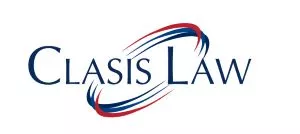Introduction
Social media platforms such as Instagram, Facebook and Twitter are not just a mode of entertainment today but they have evolved into an arena for trade and commerce activities as well. They have also upheld the basic criteria of transmission of information and have also accommodated a space for people to freely express their views as well as opinions.
Further, over the top ("OTT") platforms in today's age and especially during this COVID-19 pandemic have become increasingly popular with the masses and a paradise for content creators. OTT's are the streaming services which stream audio and visual content on their platform through the internet. While such platforms were earlier streaming content which was already released, in recent times they have begun the production of their own content, which includes feature films, documentaries, web series, etc. In India, Amazon Prime Video, Disney+ Hotstar and Netflix dominate the OTT market, followed by other competitors namely, Sony Liv, Voot, etc.
The COVID-19 pandemic and consequently the lockdowns in India has introduced us to the stark reality of our over dependence and reliance over social media and OTT platforms. The deliberations clearly bring to the dawn that the dependence of people on social media is highly treacherous as there is a high probability of its misuse at this point in time. In the recent years, there has been a rampant use of social media to abuse women and to even infringe with people's privacy.
Laws regulating social media and the OTT Platforms
While there are no specific laws to regulate the content available online, there are a few articles and sections from different legislations that regulate the content available online such as Sections 67A, 67B and 67C if the Information Technology Act, 2000 ("IT Act"). These sections provide for penalty as well as imprisonment to be imposed on anybody who has transmitted or published any kind of obscene material, any sexually explicit material including those where children are depicted in sexual acts. The Central Government is also provided with the powers to issue directives to block certain information to be in public access, under Section 69A of the IT Act.
Additionally, many of the OTT platforms signed a self-regulatory code, the 'Code of Best Practices for Online Curated Content Providers' which was released by the Internet and Mobile Association of India (IAMAI). This code works towards a framework of open disclosure by the platforms. The objectives of this code are:
- Empower consumers to make informed choices on age-appropriate content;
- Protect the interests of consumers in choosing and accessing the content they want to watch, at their own time and convenience;
- Safeguard and respect creative freedom of content creators and artists;
- Nurture creativity, create an ecosystem fostering innovation and abide by an individual's freedom of speech and expression;
- Provide age and content classification as well as parental or access control; and
- Provide a mechanism for complaints redressal in relation to content made available by respective online curated content (OCC) providers.
However, the recent times and dependence of the masses on social media and OTT platforms has led to the need for regulation of such platforms. Amidst growing concerns around lack of transparency, accountability and rights of users related to digital media and after elaborate consultation with the public and stakeholders, on 25 February 2021, the Ministry of Information and Broadcasting, Government of India enacted the Information Technology (Intermediary Guidelines and Digital Media Ethics Code) Rules, 2021 ("IT Rules 2021"). These IT Rules 2021 are in supersession of the earlier Information Technology (Intermediary Guidelines) Rules 2011.
The IT Rules 2021 have divided the entities that store or transmit data on behalf of other persons into two categories. Intermediaries include internet or telecom service providers, online marketplaces, and social media platforms. The two categories are as follows:
- Social media intermediary – means an intermediary which primarily or solely enables online interaction between two or more users and allows them to create, upload, share, disseminate, modify or access information using its services.
- Significant social media intermediary - means a social media intermediary having number of registered users in India above such threshold as notified by the Central Government.
Key features of the IT Rules 2021
- Due diligence by intermediaries: The due diligence to be observed by intermediaries (both social media intermediary and significant social media intermediary) inter-alia includes: (i) informing users about rules and regulations and publish its privacy policy and user agreement for access or usage of its computer resource by any person, (ii) informing the intermediary's users, at least once every year, that in case of non-compliance with / changes in the rules and regulations, privacy policy or user agreement for access or usage of the computer resource of such intermediary, it shall have the right to terminate access or usage rights of the users to the computer resource immediately or remove non-compliant information or both, as the case may be;, (iii) remove or disable access to unlawful information within 36 hours upon receipt of order from the Court or on being notified by the Appropriate Government or its agency, as the case may be, (iv) take all reasonable measures to secure its computer resource and information contained therein following the reasonable security practices and procedures as prescribed in the Information Technology (Reasonable Security Practices and Procedures and Sensitive Personal Information) Rules, 2011, (v) provide, as soon as possible, but not later than 72 hours of the receipt of an order, information under its control or possession, or assistance to the Government agency which is lawfully authorised for investigative or protective or cyber security activities, for the purposes of verification of identity, or for the prevention, detection, investigation, or prosecution, of offences under any law for the time being in force, or for cyber security incidents, (vi) retaining information collected for the registration of a user for 180 days after cancellation or withdrawal of registration. Intermediaries are required to report cybersecurity incidents and share related information with the Indian Computer Emergency Response Team (CERT).
- Grievance redressal: The intermediary shall prominently publish on its website, mobile based application or both, as the case may be, the name of the Grievance Officer and his/her contact details as well as mechanism by which a user or a victim may make complaint against violation of the provisions of this rule or any other matters pertaining to the computer resources made available by it, and the Grievance Officer shall - (i) acknowledge the complaint within 24 hours and dispose off such complaint within a period of 15 days from the date of its receipt; (ii) receive and acknowledge any order, notice or direction issued by the Appropriate Government, any competent authority or a court of competent jurisdiction
- Additional due diligence for significant social media intermediaries: In addition to the due diligence observed under point (a) above, a significant social media intermediary shall, within three (3) months from the date of notification of the threshold, observe the following additional due diligence while discharging its duties, namely: (i) appointing a chief compliance officer to ensure compliance with the IT Act and the Rules, (ii) appoint a nodal contact person for 24x7 coordination with law enforcement agencies and officers to ensure compliance to their orders or requisitions made in accordance with the provisions of law or rules made thereunder, (iii) appoint a grievance officer residing in India, and (iii) publish a monthly compliance report mentioning the details of complaints received and action taken thereon, and the number of specific communication links or parts of information that the intermediary has removed or disabled access to in pursuance of any proactive monitoring.
- Intermediaries which provide messaging as a primary service: In such case intermediaries must enable the identification of the first originator of the information on its platform. This originator must be disclosed if required by an order from the Court or the Government. Such order will be passed for specified purposes including investigation of offences related to sovereignty and security of the state, public order, or sexual violence. No such order will be passed if less intrusive means are effective in identifying the originator of the information. The intermediary will not be required to disclose the contents of any communication. If the first originator is located outside India, the first originator of that information within India will be deemed to be the first originator.
- Three-tier grievance redressal mechanism: In
case of digital media publishers (news and OTT), a three-tier
grievance redressal mechanism will be in place for dealing with
complaints regarding content: (i) self-regulation by the
publishers, (ii) self-regulation by the self-regulating bodies of
the publishers headed by a retired judge of the Supreme Court, a
High Court, or an independent eminent person from the field of
media, broadcasting, entertainment, child rights, human rights or
such other relevant field, and have other members, not exceeding
six, being experts from the field of media, broadcasting,
entertainment, child rights, human rights and such other relevant
fields, and (iii) oversight mechanism by the central
government.
The publisher will appoint a grievance redressal officer based in India and ensure that the Grievance Officer takes a decision on every grievance received by it within fifteen (15) days, and communicate the same to the complainant within the specified time. As part of the oversight mechanism, the Ministry of Information and Broadcasting ("MIB") will establish an Inter-Departmental Committee to hear grievances not addressed by self-regulatory bodies and also oversee adherence to the code of ethics. - Code of Ethics for Digital Media Publishers: The IT Rules 2021 prescribe the code of ethics to be observed by publishers of digital media including: (i) news and current affairs content providers, and (ii) online curated content providers (also known as OTT platforms). For news and current affairs, the following existing codes will apply: (i) norms of journalistic conduct formulated by the Press Council of India, (ii) programme code under section 5 of the Cable Television Networks Regulation Act, 1995, (iii) content which is prohibited under any law for the time being in force shall not be published or transmitted. For OTT platforms, the requirements inter-alia include: (i) classifying content in age-appropriate categories as specified, (ii) implementing an age verification mechanism for access to adult content, and access control measures such as parental controls, and (iii) Restriction of access to certain curated content by a child, (iv) improving accessibility of content for disabled persons.
- Blocking of content in case of emergency: In any case of emergency nature, for which no delay is acceptable, the Authorised Officer, shall examine the relevant content and consider whether it is within the grounds referred to in section 69A(1) of the IT Act and it is necessary or expedient and justifiable to block such information or part thereof and submit a specific recommendation in writing to the Secretary, MIB. Further, the Secretary, MIB may, if he/she is satisfied that it is necessary or expedient and justifiable for blocking for public access of any information or part thereof through any computer resource and after recording reasons in writing, as an interim measure issue such directions as he/she may consider necessary to such identified or identifiable persons, publishers or intermediary in control of such computer resource hosting such information or part thereof without giving him an opportunity of hearing.
- Guidelines for curated content: The classification of any curated content shall be guided by the following sets of guidelines, namely: (i) general guidelines for classification of films and other entertainment programmes, including web based serials, (ii) issue related guidelines. While the general guidelines are general factors that may influence a classification decision at any level, the issue related guidelines comprises the issues and concerns that apply in varying degrees to all categories of classification and elaborates the general approach that may be taken in this regard to the same.
Conclusion
The OTT platforms will be required to follow the basic laws of the land while streaming content. They will also have to set up the same three-tier grievance redressal mechanism like the digital media platforms. The self-regulatory bodies in case of online curated content can direct the publisher to reclassify ratings of relevant content, make appropriate modification in the content descriptor, age classification and access control measures, and edit synopsis of the relevant content. Further, it is imperative that the industry works on setting up a self-regulatory body on the lines of the Government's recommendations to ensure that the Inter-Ministerial Committee (IMC) does not end up becoming the second-tier in the grievance redressal mechanism.
Additionally, the IT Rules 2021 cast a shadow over the fate of the universal self-regulatory code, which was signed by 17 OTT majors last year. The self-regulatory code was rejected by the Government, but IAMAI had attempted to address the concerns by adopting an 'Implementation Toolkit'. It is yet to be seen what the fate of the self-regulatory code which the OTT majors have signed will be and the way forward.
The content of this article is intended to provide a general guide to the subject matter. Specialist advice should be sought about your specific circumstances.


